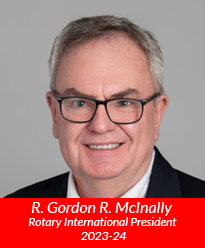 One prevailing trait of mental health issues is the quiet demeanor exhibited by those suffering from them. This is especially true in places where it is customary to avoid discussing mental health problems. In the most tragic cases, families or friends only come to realize that there was an issue after they lost their loved ones.
One prevailing trait of mental health issues is the quiet demeanor exhibited by those suffering from them. This is especially true in places where it is customary to avoid discussing mental health problems. In the most tragic cases, families or friends only come to realize that there was an issue after they lost their loved ones.
I have had a similar experience. My brother, Ian, who was three years younger than me, was an active member of Rotaract, an international organization that fosters leadership and responsible citizenship. He worked in the IT industry and was happily married. His passing in 2014 shook me to my core. The lives of those who cared for him were forever altered, each one of us grappling with the question, “What did I miss?”
I will likely ask that question for the rest of my life. However, I have also become engaged in conversations about mental health and was delighted to discover that many members of Rotary International are already heavily invested in this subject. I committed myself to supporting mental health organizations. And now, as the President of Rotary International, a volunteer organization with 1.4 million members worldwide, I urge volunteers to help break the stigma of discussing mental health challenges, create awareness of the growing need for mental health support, and focus on ways we can expand access to care for the people we serve.
The first step on this journey is to open up a dialogue about mental health. Sharing the story of my brother’s passing is difficult for me as well, but I decided to speak out to reassure people that they aren’t alone in their struggles and that seeking help is an act of strength. My aspiration is that by initiating these conversations, more individuals will openly discuss their mental health challenges and work together to find solutions.
Before visiting India earlier this year, my attention naturally turned to the country’s experience with mental health, especially since the pandemic. Remarkably, India faces a significant mental health concern, with an estimated 150 million people1 in need of mental health care services. However, fewer than 30 million are currently seeking care. we hear personal accounts of shame, misery, prejudice, and embarrassment from people you know who have experienced these things.
WHO estimates that the burden of mental health problems in India will lead to an economic loss between 2012-2030, is estimated at USD 1.03 trillion.
Thankfully, you are open to ideas about addressing this challenge, and today are one of the most active hubs for mental health projects within the global Rotary community.
The resolve of Rotary members in India was exemplified during the Covid-19 pandemic, when clubs stepped up to address the surge in mental distress cases. Rotary Clubs across India are focusing on providing counselling in urban and rural settings, working with schools to mitigate challenges in adolescence, establishing 24/7, free mental wellbeing helplines.Rotary members are working on suicide prevention awareness, de-addiction programmes, awareness building among, rehabilitation of homeless women in various programmes across the country.
These projects are a great start, but there remains a gap in comprehensive approaches, support networks, and systemic structures related to mental health within society. This void, prevalent not only in India but in most countries, can largely be attributed to the culture of stigmatizing mental health issues.
Mental health issues can happen to anyone, anytime, to our loved ones or even to ourselves. Therefore, cultivating a culture where we openly discuss these issues and seek help is crucial.
In the year ahead, Rotary members across the globe will focus their efforts on advocating for mental health, engaging in dialogue, and initiating projects that emphasize the significance of community, mutual support and self-care. These projects will continue in the years ahead, led by the Rotary Action Group for Mental Health Initiatives.
I extend an invitation to you to join these efforts, to recognize mental health concerns within your own communities, and to spark conversations, because your contributions will catalyze meaningful change within your own society.
Gordon McInally is president of Rotary International. A dentist by profession, he obtained his dental surgery degree from the University of Dundee and ran his dental practice in Edinburgh until 2016.













 G20 podium
G20 podium

